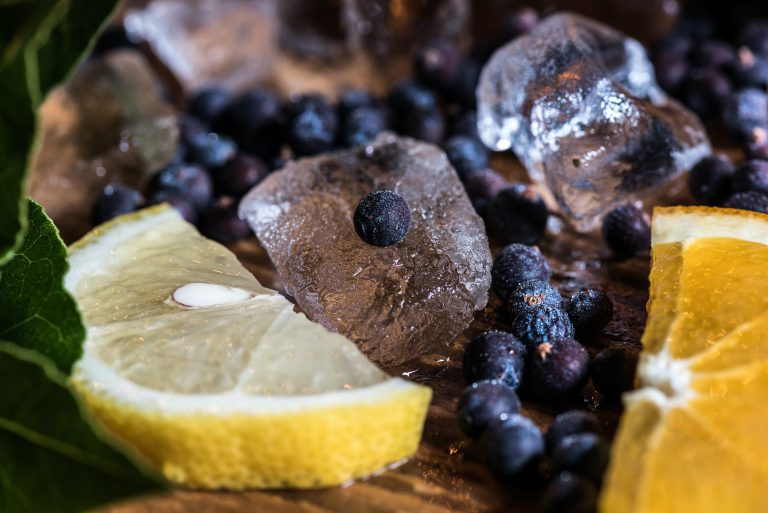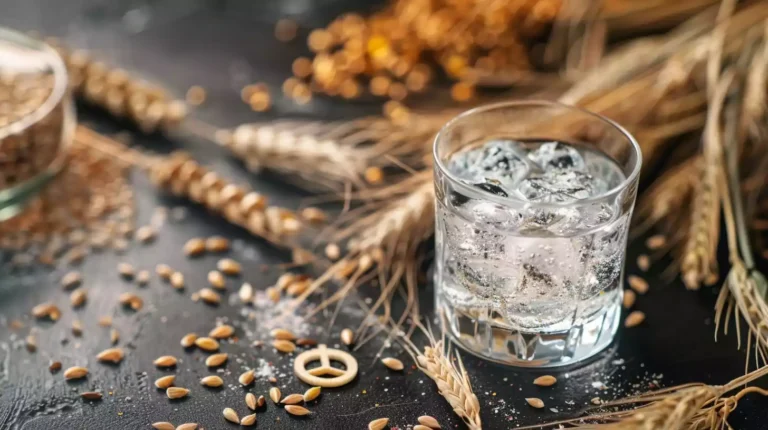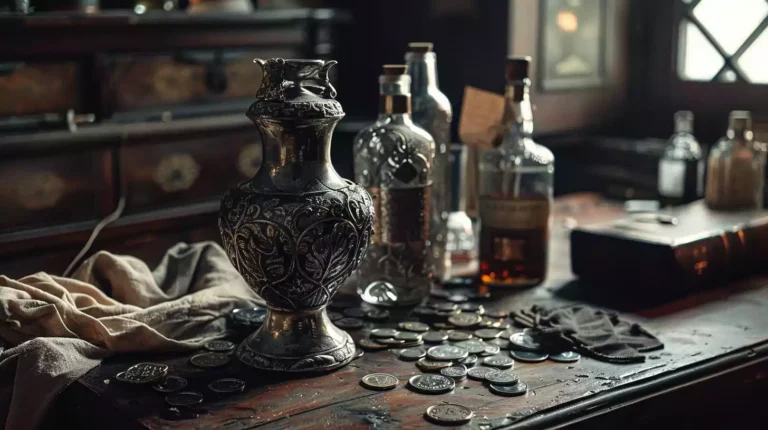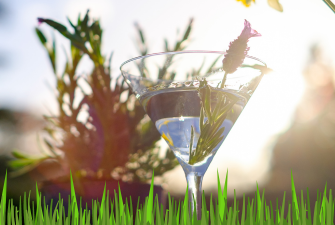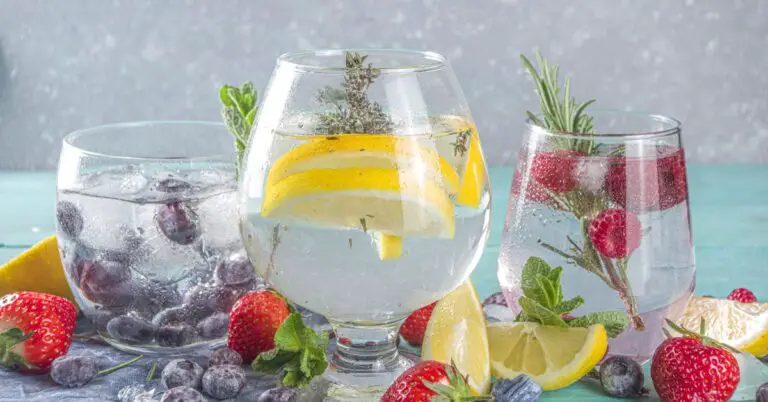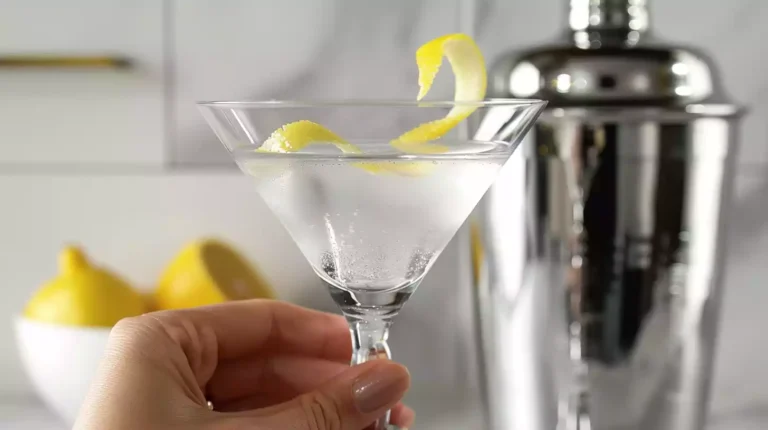Gin Shelf Life: Does Gin Expire? How Long Does Gin Last?
Gin is an amazing drink, commonly used for cocktails, but also great on its own. When you have a few bottles of gin, though, you might wonder, does gin expire or go bad over time?
An unopened bottle of gin doesn’t necessarily go bad. Gin has an Alcohol by Volume (ABV) of at least 37.5% the drink will pretty much always stay the same. As long as you don’t store your bottle of gin in a very warm place and/or expose it to a lot of sunlight, your gin will not go bad over time.
The taste of the gin might be a little bit different though if you drink from a bottle that was opened a long time ago. In this article, we’ll discuss how to best store and treat your gin to make it retain its flavor.
Will Gin Expire Over Time?
Gin is a clear spirit distilled from grain. Such spirits will hardly go bad over time, if ever. Just take a look at whiskeys, where the older the bottle, the better it is. Now, this isn’t the same for gin, but the principle still applies.
Gin won’t get better with age, but it definitely won’t go bad either.
Alcohol has always been known as one of the best preservatives used to store other goods, so it’s quite safe to say that a drink with an Alcohol By Volume, or ABV, of at least 37,5% will not go bad.
Especially when you store it correctly, which we’ll go over shortly, there’s no risk of your gin going bad.
However, the alcohol not going bad does not mean that the flavor of the gin will stay intact. Gin sets itself apart from the other clear spirits by being infused with botanicals and these botanicals can be affected by time.
The Differences In Taste
As mentioned above, gin makes itself unique by being infused with botanicals. These botanicals can be many things, but they’re usually rich in flavor.
For a gin to be a gin, it has to contain juniper berries. Some gins will have the taste of juniper berries as the main flavor, but many gin-makers like to source things up by adding botanicals.
A few of these botanicals are cinnamon, anise, cucumber, lemon, or even strawberry. We have a great article about the different kinds of standard botanicals used in gin.
These botanicals, however, can be quite frail. See, gin is comprised of top, middle, and base notes. The top notes, which are the botanicals, are the weakest and will be the first to go once gin starts to age for a while.
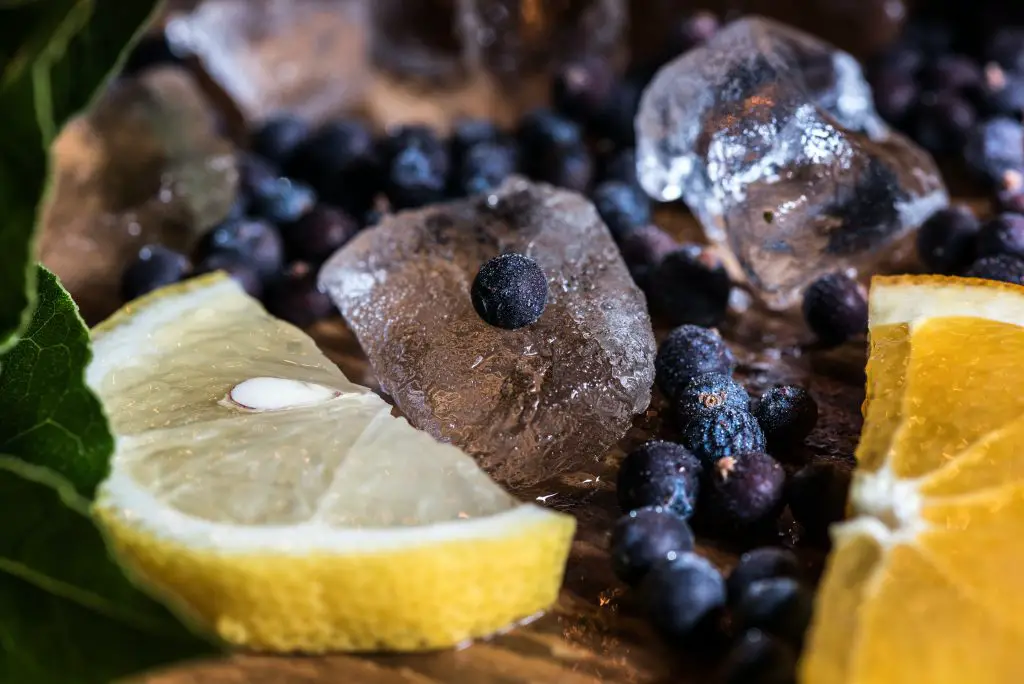
This is also the reason why you wouldn’t want to shake your gin but stir it instead. Shaking will break down the top notes, the botanicals, taking away a large portion of the flavor.
The botanicals can also start to become dull in an unopened bottle. Every bottle will evaporate over time. Of course, this is an extremely slow process, especially in an unopened bottle, but it can/will happen over time.
When your gin starts to evaporate, the top notes are once again the first to go. This will lead to a duller taste, which is something you want to prevent.
In general, though, gin won’t start losing its flavor for a long while. Most experts will tell you to finish your bottle within one to two years of opening, but it can last a while longer as well.
The key to making your gin last the longest is definitely the way you store it. Because of the frailness of the botanicals, storing your drink correctly is especially important with gin.
Other Factors That Can Impact The Taste
Besides the evaporation of the top notes and botanicals, there are a few more things that can alter the taste of your gin.
If you have a bottle of gin with a cork, for example, you should make sure to have it stand upright.
If not, the liquids of the gin will mix in with the cork, making it dissolve a little bit. This can alter the taste and make it less pleasant. This, of course, isn’t a problem with an artificial cork, only with natural ones.
There’s also one unavoidable factor that will alter the taste, and that is time. We talked about it in-depth here above, but it should be mentioned once again.
Earlier we mainly discussed the evaporation process, but there’s also an oxidation process. This makes the gin less crisp and makes the botanicals taste dull. Therefore, it’s recommended to consume your gin in a timely manner. Gin won’t really get better with age.
Another reason why gin doesn’t really age is that it’s bottled and distilled in glass bottles. The liquid can’t really take on the flavor of glass and a whiskey would in a wooden barrel.
Will An Opened Bottle Lose Its Taste Faster?
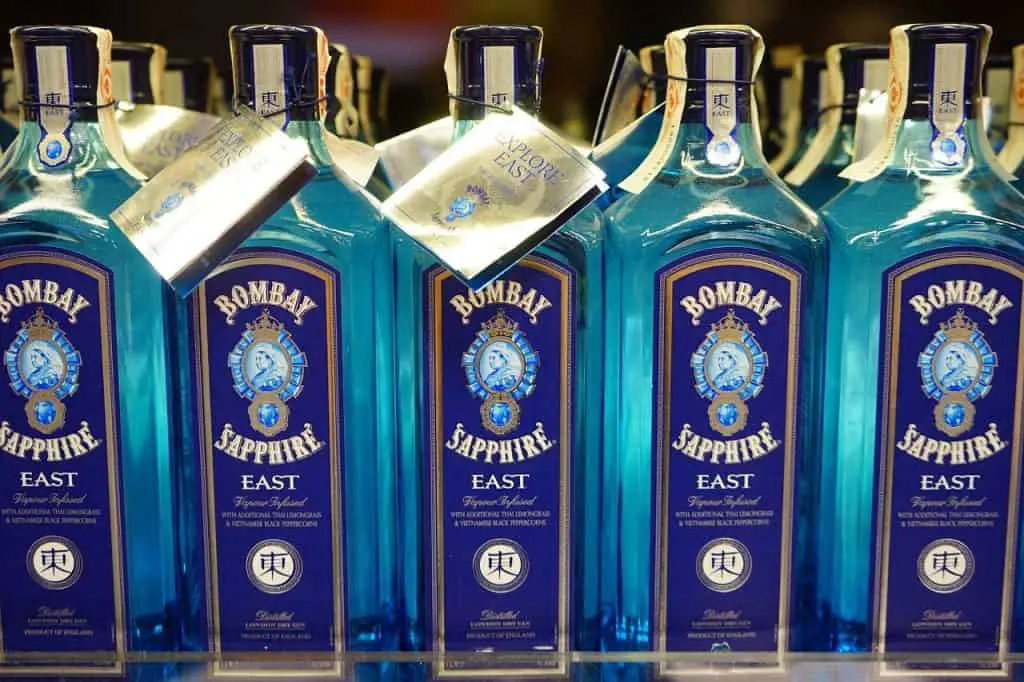
It’s established that gin will lose its flavor over time, but does an opened bottle of gin lose its flavor faster than an unopened bottle?
An opened bottle of gin will lose its flavor faster than an unopened bottle. This is because the opened bottle is exposed to more oxygen, making it evaporate and oxidize faster.
When alcohol is exposed to oxygen a process called oxidation will occur. During oxidation, the alcohol molecules react with oxygen molecules (and water). This reaction will alter the molecules, which in turn will result in a change in the flavor of the whole drink.
You can imagine that a sealed bottle of gin has minimal oxygen trapped inside the bottle. When you open your bottle and pour yourself a glass of gin, you break the airtight seal.
This will allow air to go into the bottle. When there’s more air in the bottle, there are more oxygen molecules that can react with the alcohol molecules thus resulting in more oxidation and a change of flavor.
After pouring a glass of gin, there’s also a larger area of the liquid exposed to the oxygen. This, once again, speeds up the evaporation and oxidation of your gin.
How To Store Gin
When it comes to storing gin, there’s a clear winner on the best method. And that’s storing it in the freezer.
Storing your gin in the freezer will keep it cold and slows down the evaporation process to about zero.
Your gin will evaporate over time because of the warmer room temperature. If you take out that little bit of warmth away by placing it in the freezer, the liquids of the gin will not evaporate.
And because of the minimum ABV (alcohol by volume), your gin won’t freeze either. This makes the freezer the perfect place to store your gin.
If you have no room left in your freezer, the fridge will work fine as well. It doesn’t slow the evaporation process as much as the freezer, but it does do a fantastic job as well.
In all honesty, your gin really won’t evaporate or lose its taste in either the fridge or freezer, as long as you consume in a timely manner. Still, the freezer is the preferred place to store.
Another benefit to storing your gin in the fridge or freezer is that you can always serve it cold. The gin itself will be cold, which is the best way to enjoy your gin, but it also slows down the dilution of your ice.
Gin is usually used in a cocktail but can be drunk neat as well. Serving gin with ice is a regular concept and having your gin at freezing-cold temperature will make your ice melt slower, making for a purer drink.
If you don’t want to store your bottles of gin in the fridge or freezer, I’d recommend storing them in a dark cabinet or cupboard, preferably in a cool space.
Heat and light are the biggest enemies of the frail top notes, as their energy will make them evaporate faster. Storing your gin in a cool and dark space will take away the heat and light, making for a nice spot to store your bottles.
Lastly, if you have a bottle of gin that’s already been opened, consider storing it in a smaller bottle or decanter.
When your bottle of gin is half empty, it’s exposed to more oxygen, which will fasten the evaporation process. Exposing your drink to less oxygen by storing it in a smaller container, you’ll ensure a longer shelf life.
How To Tell If Gin Has Gone Bad
If you have a bottle of gin and wonder if it’s still good, there are a few ways to check that. Even though gin will rarely go bad, it’s always best to check an old bottle beforehand.
The easiest way to check your gin is to smell it. Gin has a distinct scent of alcohol and juniper berries, which smells fresh, crisp, and almost like pine. Also, if you have a gin focused on a certain botanical, you might be able to pick up that scent as well.
If your gin smells off or dull, it might mean that the taste has been altered by any of the aforementioned factors. This doesn’t mean that the gin is unusable, as we’ll discuss shortly, but don’t expect the crisp and vibrant taste you’d get from a fresh bottle.
Another thing to check for is the liquid itself. If your liquid is clear, there’s nothing wrong, but if you have some particles flowing around, you should probably open another bottle.
Overall, though, you probably won’t really encounter these problems, especially if you store your gin in the freezer.
It should also be mentioned that gin losing its scent will be the first thing to appear.
This is a relatively harmless stage and leaves the gin perfectly usable. After a long while, or when stored in direct sunlight, the particles can start to show, which is a sign that you should probably go for a different bottle.
Can You Still Use Dull-Tasting Gin?
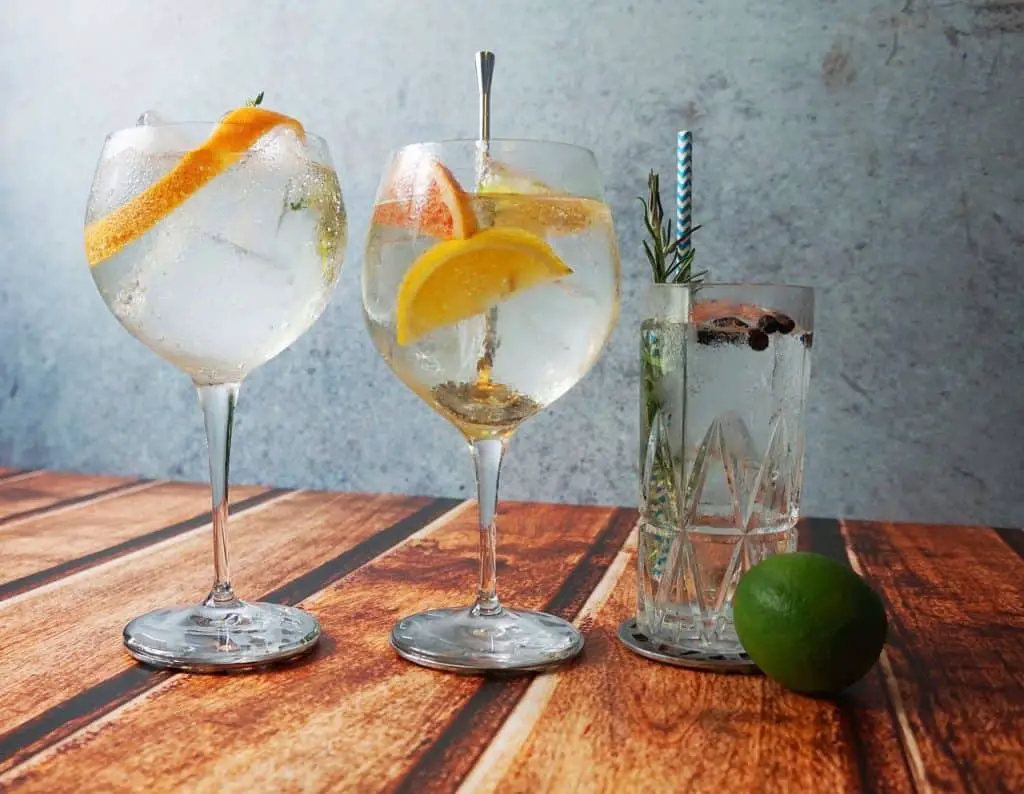
Of course, you can! Gin is a commonly used ingredient in many cocktails. Using a slightly duller-tasting gin in a cocktail is perfectly fine. Especially if you’re making a cocktail that’s full of other flavors. The slightly duller taste really won’t shine through.
But even if you’re making a simple gin and tonic, you can still use a slightly duller-tasting gin. Tonic already has a bitter taste that goes perfectly with the crispness of gin. Serve it with some ice and the slightly duller taste will not be noticeable to most people.
It will take a very long time for a gin to lose its signature taste completely, so don’t stress about it. Just make sure to not leave your dull-tasting bottle of gin hanging around for too long.
Another use for a slightly duller gin is using it for shots. You can actually take gin shots but you wouldn’t want to waste a high-quality gin on that. Your slightly duller-tasting gin, however, would be perfect for shots.
Final Thoughts
Gin is a clear-grain spirit, infused with lovely botanicals. Because of the high ABV (Alcohol By Volume), gin won’t really go bad over time. But it won’t get better either.
Gin is made up of top notes, middle notes, and base notes. The botanicals that are responsible for the unique taste of gin are in the top notes. These top notes are quite volatile and can break down somewhat easily.
To prevent your gin from losing its taste, you should make sure to store it correctly. Preferably store it in the fridge or freezer, but a dark and cool cabinet or cupboard will work fine as well.
When you take proper care of your bottle of gin, you really do not have to worry about it going bad or losing its taste. And even if it does, you can still use a duller-tasting gin.

